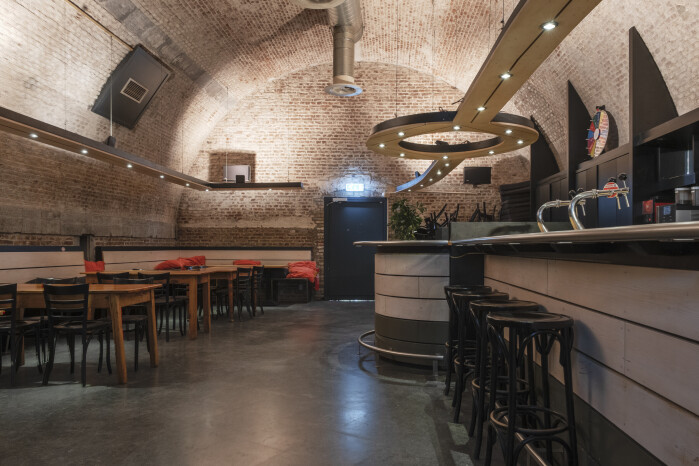Amsterdam housing market largely unaffected by earlier pandemics
Anyone hoping to buy a house in Amsterdam for a better price after the Covid-19 pandemic is likely to be disappointed. Historically, the city has proven extremely resilient after outbreaks of major pandemics such as the plague. House and rental prices tend to dip briefly, then quickly rebound to pre-pandemic levels. This is the conclusion of PhD candidate Matthijs Korevaar following his in-depth research into the housing market over a period of 500 years. “I'm more pessimistic about that”, he says of claims that the pandemic is an economic and social equaliser. “If anything, a shock like this is bringing existing structural inequalities to the fore.”
City archives
For his research, Korevaar delved into the city archives of Amsterdam and Paris and collected 500 years’ worth of purchase and sales deeds. “I’ll be defending my PhD on 26 June on the dynamics of the housing market in the very long term. Analyses of the housing market are often short term, looking at the impact of the crisis of three years ago, for example. But people often hold on to their houses for a long time, so you want to know how prices develop in the long run. Together with Professor Marc Francke from the University of Amsterdam, I started a project long before the current pandemic on the impact of demographic shocks on the housing market.”
Baby boomer generation
“The basic idea was that we’re now dealing with an ageing society. The baby boomers who got married and had children in the 1970s and 80s typically bought their own homes. These people are now retiring, and perhaps thinking about downsizing or using the money from their homes for their pensions or grandchildren. What effect does this have on the housing market? It’s very difficult to measure, because there’s only one baby boomer generation. That’s why we put together 500 years of birth and death records. What we found was that in the past, following a period with a high birth rate, house prices consistently rose sharply 25 to 30 years later and dropped 65 years later.”

On 15 January, Matthijs Korevaar earns his PhD from the UM School of Business and Economics, Finance Department, with the dissertation ‘Financial Lessons from the Long History of Housing Markets’. To mark this event, we once again share this article about his research that was published on the website in May 2020.
This article was part of 'We're Open', a series of stories about the UM community’s many activities during the coronavirus pandemic.

Plague
So Korevaar and Francke had the long-term data already. It was the short-term analysis that proved difficult. “People move to the city because they think they can find good jobs there. But how do you distinguish whether house prices are going up because good jobs are available, or because of the fact that people want to live there? In other words: does work attract people and thereby increase house prices, or does a population with a good income lead to higher house prices? It’s difficult to tease those two things apart. Initially we thought pandemics would help us to resolve this issue. Think of the plague—you’ve got a large proportion of the population suddenly vanishing. But pandemics turned out to be accompanied by economic damage, even back then, due to restrictions on economic activities. So that idea was shelved—until the current outbreak and suddenly it became extremely interesting to study pandemics. We wanted to know if major cities like Amsterdam and Paris bounced back after a pandemic, and how big the negative effects were.”
Golden Age
Amsterdam and Paris have proven strong and resilient over the centuries. “What I found fascinating is that seven times during the Golden Age, Amsterdam—the Golden Age city—saw 10% of its population die and many more people fall ill as a result of a pandemic. That’s a large chunk of human capital lost and an economy that grinds to a halt. And yet the city bounces back within a year or two, thanks to a mass influx of migrants. If our conclusions are reliable, historically the city became no less popular after such a huge outbreak. Once the storm had blown over, it grew as fast as before.”
The great equaliser
Comparatively speaking, will the pandemic have consequences for the vast differences in house prices between the Randstad and the provinces? “Our historical research says little about the effects on smaller places, but in recent years the difference between house prices in the Randstad and regions like Limburg has only increased. I don’t see that trend being reversed by a pandemic. If anything, I think the structural inequality that already existed is now being exposed even more blatantly.” So Covid-19 will not be the ‘great equaliser’ it is sometimes claimed to be? “I’m somewhat pessimistic about that. Everyone wants to know what will happen in the future, but predicting the consequences for the economy, especially in the short term, is very difficult. All you can reasonably say is that everything is uncertain. And if there’s one thing economists agree on, it’s that uncertainty is never good. Predicting what will happen to the economy in the short term is like reading tea leaves. But in the long run, this is not going to bring about a huge change in the functioning of the Dutch housing market.”
The lure of the city
Why do rental prices barely change during and after a pandemic? “Rents are always a bit ‘sticky’; it usually takes a while for them to go up or down. Leases tend to be long-term contracts, and you don’t amend those quickly. Moreover, pandemics tend not to reduce the demand for housing because people soon start heading to the city again, at least in places like Amsterdam and Paris that serve as magnets for migrants. So they feel the effects of a pandemic only briefly.”
Read the paper by Matthijs Korevaar and Prof. Marc Francke (UvA) here
Text: Margot Krijnen
Also read
-
Nick Bos describes himself as “a fairly rational person.” When he so much as mentions words like pleasure, love or lonely, he immediately corrects himself: “Well, love is a big word. Let’s just say my affinity with the university blossomed at UM.” In Maastricht, the man who initially aspired to an...
-
A study conducted by the European Association for the Study of Obesity led by Prof. Gijs Goossens of Maastricht UMC+ published today in Nature Medicine.
-
Maastricht University takes care of many distinctive buildings and art works that we all know. By giving them a new purpose, we preserve these icons and give them a new meaning, making them the vibrant heart of a bustling city.
Did you know that these buildings and art works also provide access to...


